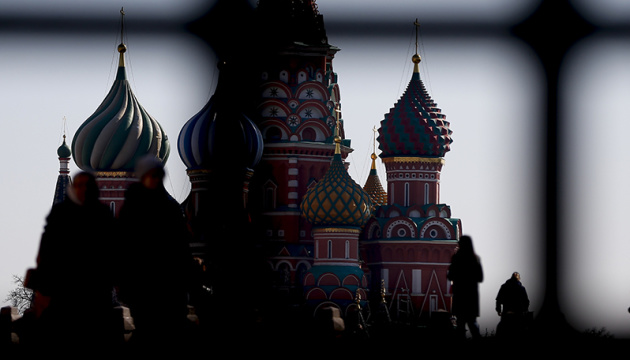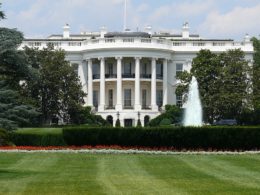G7 finance ministers were unable to reach a consensus on how to handle more than €260 billion in frozen Russian assets, despite pressing needs to finance Ukraine's defense against ongoing Russian aggression.
Christine Lagarde, President of the European Central Bank, has raised legal concerns regarding the US-backed proposals to leverage these assets for raising debt, Financial Times reported.
During a conference in Washington, Lagarde said it was not possible to transition from freezing assets to potentially confiscating and reallocating them, a process she described as fraught with legal peril and potentially disruptive to the established international order. Her stance underscores a notable rift between transatlantic allies over the financial strategies to support Ukraine amid its war with Russia.
Lagarde's legal background amplifies her cautious stance on these proposals. The ECB has previously expressed concerns about the implications of asset confiscation on the euro and "financial stability."
The US has advocated for a robust approach that would see the complete confiscation and redirection of the Russian reserves directly to Ukraine. However, this proposal has met with resistance from European officials, who cautioned that such moves could contravene international law and unsettle global financial markets.
The European preference leans towards utilizing only the profits derived from these assets, avoiding the so-called legal complexities of asset seizure. In particular, recent developments regarding frozen Russian assets have seen the European Union advancing proposals to fast-track up to €3 billion for Ukraine by July 2024, sourced from profits generated by frozen Russian assets held at Euroclear.
In contrast, the UK has expressed openness to exploring the US proposal, with Chancellor Jeremy Hunt describing the idea as "really interesting" and worthy of thorough legal and practical examination to ensure compliance with international law.
"We reaffirm our determination to ensure that Russia pays for the damage it has caused to Ukraine. Russia’s sovereign assets in our jurisdictions will remain immobilized until then, consistent with our respective legal systems," the G7 officials said. The statement by G7 officials did not include a specific plan for the assets, but said they would "continue working on all possible avenues by which immobilized Russian sovereign assets could be made use of to support Ukraine" with a view to presenting options to G7 leaders at a June summit in Italy.
On 16 April 2024, the Parliamentary Assembly of the Council of Europe (PACE) unanimously passed a resolution in support of Ukraine's reconstruction, as reported by Ukrinform. All 134 participants at the meeting endorsed the resolution, which proposes using frozen Russian assets to fund Ukraine's infrastructure repairs.
The resolution advocates for these assets to be transferred to a newly established international compensation fund. Additionally, it calls for the creation of an international claims commission to handle claims related to damages from Russian aggression. The plan also involves setting up an international trust fund to manage the Russian assets, ensuring that the disbursement of these funds is transparent, accountable, and equitable.
As discussions unfold, the urgency to resolve this matter escalates, given the protracted nature of Russia's war against Ukraine, now entering its third year, and the recent complications surrounding additional US aid.
Read also:
- PACE adopts resolution to use Russian assets for Ukraine’s reconstruction
- FT: US proposes debt to fund Ukraine using profits from Russian assets
- Politico: EU retains €5 billion Russian frozen asset profits, blocks transfer to Ukraine
- Ukrainian MP urges UK to use frozen Russian assets to support war effort
- EU aims to send €3bn annually for Ukraine from frozen Russian assets profit
- Borrell to submit plan for using frozen Russian asset revenues for Ukraine weapons
- EU moves to consolidate €260 billion in frozen Russian assets, paving way for Ukraine's recovery




